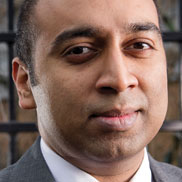The BMA has told the Government that it is ‘not acceptable’ that it is allowing the GP workforce crisis to worsen at a time when the NHS is at ‘breaking point’.
GPC education, training and workforce lead Dr Krishna Kasaraneni said the news of shrinking full-time GP numbers comes at a time of ‘uncertainty’ as the UK triggered Article 50 to start the process of leaving the EU on Wednesday – threatening an exodus of doctors.
Meanwhile, the RCGP has branded the news a ‘huge blow’ to the NHS, especially in light of the Government’s ‘recent efforts’ to boost the GP workforce.
As the GP FTE workforce reduced by 445 in just three months between September and December 2016, Dr Kasaraneni said the figures ‘underline just how far we are from meeting the Government’s own target of recruiting and retaining more GPs’.
He pointed out that this comes as ‘we near the one year anniversary of the GP Forward View in England’, which contained plans to stop GPs leaving the profession.
He said: ‘Despite the constant promises from ministers that the GP workforce would be increased by 5,000, the number of full time GPs has fallen once again while the overall number has stagnated.
‘While there have been encouraging increases in other healthcare professionals in general practice, what we really need are GPs who can deliver more appointments and other front line services to meet rising patient demand.’
Referring to the BMA’s recent survey of doctors from the EU, Dr Kasaraneni added: ‘There is also a great deal of uncertainty as Article 50 is triggered about the future status of doctors and other healthcare professionals from the European Union.
‘With almost half of the 10,000 EEA doctors working in the NHS considering leaving the UK because of the referendum result this could further reduce the number of GPs delivering care in the NHS.
‘The NHS is at breaking point and it is not acceptable for this recruitment and retention crisis to be allowed to get worse.’
RCGP chair Professor Helen Stokes-Lampard said: ‘These figures are a huge blow – especially considering the recent efforts we know have gone into building the GP workforce.’
Acknowledging that the data, which NHS Digital calls ‘experimental’, had to be treated with caution, she said that ‘at face value a drop of over 400 full-time equivalent GPs based on figures to December is dreadful when we so desperately need thousands more in order to cope with ever-growing patient demand’.
Professor Stokes-Lampard said the data showed it was ‘clear that current efforts to recruit more GPs and make general practice an attractive profession must be stepped up further’, committing the college – which has run two recruitment campaigns alongside the Government – to ‘continue to work with Health Education England and others to help wherever we can’.
She said: ‘We need to turn the tide. The future of the health service and patient care relies on having a robust general practice, with enough GPs to deliver the care and services our patients need…
‘We are committed to working with NHS England and the Government to ensure GPs stay working in the profession.’
She added that ‘despite today’s figures being incredibly disappointing’, the Government’s pledge of 5,000 more GPs by 2020 ‘remains a goal worth fighting for, and we all must redouble our efforts to achieve it.’
Commenting on the impact of Brexit on the GP workforce, James Gransby, partner and head of healthcare at accountants’ MHA MacIntyre Hudson, said: ‘The impact that Brexit may have on the GP workforce is concerning.
‘Many GPs from mainland Europe, even those who had trained in the UK more than 20 years ago, are considering returning to their countries as a result of Brexit. It remains to be seen whether or not these are just isolated cases, but we hope that it’s not indicative of a mood which prevails across the industry.’
But he added that the impact of Brexit would depent on ‘how the Government decides to go about it, and how willing other countries are to sign up to our preferred plans’.
And BMA chair Dr Mark Porter said: ‘While Theresa May says Brexit means Brexit, for the thousands of European doctors working in the UK all it means is uncertainty as to whether they and their families will have the right to stay here…
‘It won’t be a case of losing doctors from the EEA and replacing them with British doctors – it takes at least 10 years to train a doctor, and poor workforce planning by the Government means we simply don’t have enough for the number of patients in need.’
No guarantees for EU GPs in the UK
The comments come as health minister David Mowat told last week’s Pulse Live conference that the Department of Health is ‘unambiguous’ that GPs from the EU practising in the UK should be able to stay on after the UK leaves the EU.
This comes as the GP Forward View pledged to recruit 500 GPs from EU to work in England – a programme that has already started.
But as it stands, Theresa May’s Government has refused to issue guarantees to any EU citizen resident in the UK, whether they work within the struggling NHS or not.
Mr Mowat also insisted that the Government would definitely meet its target of 5,000 more GPs by 2020, because this was a ‘manifesto commitment’. But he added that ‘the whole thing with Brexit will have to be managed very carefully’.
Today’s NHS Digital statistics showing a decline in GP workforce comes after two years of concerted effort to boost GP recruitment and retention via the 10-point plan.

















